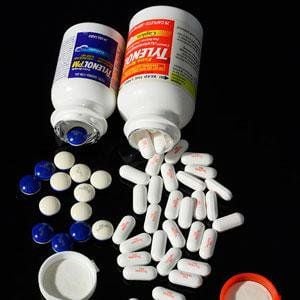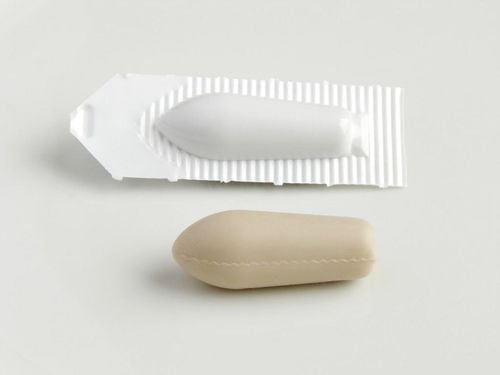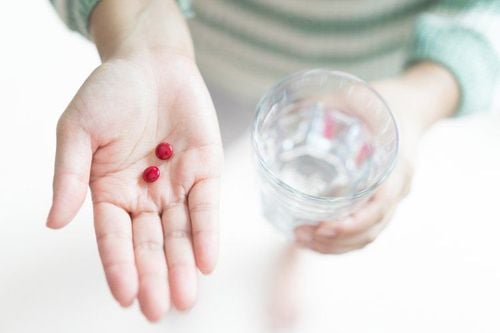Glibenclamide 5mg is an oral hypoglycemic agent belonging to the sulfonylurea class, used primarily for the management of type 2 diabetes mellitus to reduce blood glucose levels. Glibenclamide is typically administered once daily, preferably in the morning with or after the first meal. The dosage should be individualized based on the patient’s glycemic control, taking into consideration factors.
1. Uses of Glibenclamide
Glibenclamide 5mg is a medication used to control blood sugar levels in patients with type 2 diabetes (non-insulin dependent diabetes) when diet and exercise alone are not effective. The formulation also includes excipients such as anhydrous lactose, microcrystalline cellulose PH102, and magnesium stearate.
Glibenclamide comes in the form of white, oblong tablets, with a dividing line in the middle for easy dosage adjustment. The medication is packaged in boxes containing 10 blisters of 10 tablets each, or 5 blisters of 20 tablets each.
Glibenclamide is indicated for the management of blood glucose levels in patients with type 2 diabetes mellitus who do not rely on insulin and have failed to achieve adequate control with diet alone. The drug works by stimulating insulin release from the pancreatic β-cells, thereby lowering blood glucose levels.
Glibenclamide should not be used in the following cases:
- Individuals allergic to Glibenclamide or any of the components in the drug.
- Individuals with a history of allergy to sulfonylurea drugs (such as Glibenclamide).
- Individuals with type 1 diabetes (insulin-dependent diabetes) or unstable forms of diabetes.
- Individuals in a diabetic coma due to complications of diabetes.
- Individuals with severe liver or kidney dysfunction or severe malnutrition.
- Pregnant or breastfeeding women should not use this medication.
- Individuals with acute metabolic imbalances caused by infection or gangrene.
2. Dosage and Administration of Glibenclamide BP 5mg
Glibenclamide is taken orally. The recommended dose should be taken once daily, ideally in the morning or with the first main meal of the day. During the treatment, patients should also follow a balanced diet and engage in physical activity or exercise.
The dosage of Glibenclamide depends on the patient's blood glucose level. Blood glucose should be monitored before each treatment cycle to adjust the dose as necessary.
Adult dosage:
- Starting dose: 2.5 - 5mg daily, taken 30 minutes before meals. If necessary, the dose can be adjusted by increasing by 2.5mg every 1-2 weeks until the blood glucose level reaches the normal range.
- Maintenance dose: 2.5 - 10mg per day. For doses greater than 10mg per day, the dose should be split into two doses.
- Maximum dose: The maximum daily dose is 15mg.
Dosage for patients switching from other diabetes medications:
- Starting dose: 2.5 - 5mg immediately after discontinuing the previous medication.
- If dose escalation is needed, increase by 2.5mg at each step until the required blood glucose level is achieved.
Dosage for children: Glibenclamide is not recommended for use in children.
Dosage for elderly patients: Elderly patients should avoid the medication or use a reduced dose.
Dosage for patients with liver or kidney dysfunction: The dosage should be reduced compared to the standard dosage, with a recommended dose of 1.25mg per day.
3. Overdose, Missed Dose, and Management
Overdose symptoms and management:
- Symptoms of overdose: Taking an excessive dose of Glibenclamide or interacting with other medications may lead to hypoglycemic reactions (low blood sugar).
- Symptoms include headaches, excessive sweating, insomnia, behavioral disturbances, irritability, and confusion.
- In more severe cases, it may cause loss of consciousness, seizures, or even coma and death.
Management: If an overdose occurs, increase blood sugar by consuming sugar (oral glucose) to counteract hypoglycemic episodes and immediately inform a healthcare provider. If necessary, patients can eat more sugar after 15 minutes. In severe cases, if the patient is unconscious, glucose can be administered through a gastric tube or intravenous glucose infusion.
Missed dose: If a dose of Glibenclamide is missed, it should be taken as soon as remembered. If the next dose is near, skip the missed dose and continue with the next scheduled dose. Do not take double the prescribed dose.
4. Side Effects of Glibenclamide 5mg
Common side effects: Most people may experience nausea, vomiting, diarrhea, or constipation.
Less common side effects:
- Blood sugar: It can cause low blood sugar (hypoglycemia).
- Skin reactions: May cause rashes or hives.
Rare side effects:
- Blood counts: In rare cases, it can lower the number of white blood cells, platelets, or red blood cells.
- Blood vessels: It may cause inflammation of blood vessels (vasculitis).
- Liver issues: It can lead to yellowing of the skin or eyes (jaundice) due to liver problems like hepatitis or bile duct issues.
- Light sensitivity: Some people may become sensitive to sunlight or have temporary vision problems.
5. Things to Keep in Mind When Using Glibenclamide 5mg
- Kidney function: If you have kidney problems, malnutrition, or are elderly, you should be cautious when using Glibenclamide.
- Allergic reactions: If you're allergic to sulfonamides (a group of drugs), you might have a reaction to Glibenclamide.
- Pregnancy: Glibenclamide can pass to the baby through the placenta and cause low blood sugar in the baby. Pregnant women should switch to insulin.
- Breastfeeding: It's not recommended to use Glibenclamide while breastfeeding.
- Glibenclamide can lower blood sugar more when taken with drugs like sulfonamides, NSAIDs, beta-blockers, cimetidine, or chloramphenicol.
- It might not work as well when taken with thiazide diuretics, oral contraceptives with estrogen, or some other medications.
- If combined with drugs like salbutamol or terbutaline, it might raise blood sugar levels.
- It might not work as effectively if used with tuberculosis medications.
Glibenclamide helps lower blood sugar in people with diabetes who can't control it just with diet changes. It's important to follow your doctor’s instructions, eat a healthy diet, and exercise regularly. You should also check your blood sugar regularly to make sure the dose is working properly.
To arrange an appointment, please call HOTLINE or make your reservation directly HERE. You may also download the MyVinmec app to schedule appointments faster and manage your reservations more conveniently.













